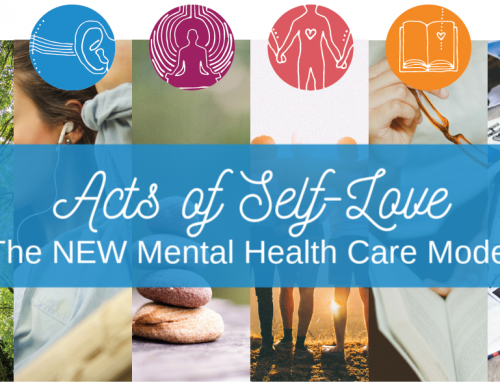Things pile up. We over-gift at the holidays and receive gifts we don’t use, buy clothes we never wear and save papers that don’t need to be saved. Nonetheless, the reality of life is that getting rid of things is often extremely difficult. While the sadness of ditching toys your kids have outgrown is more obvious, feeling anxiety over shredding billing statements that are ten years old is a bit harder to explain. Despite how difficult it feels, though, decluttering brings good things both spatially and emotionally. Here are a few tips on how to declutter both your house and mind this spring.
The Physiological Chemistry Behind Stress Mess
Psychology Today talks about “stress mess” and draws parallels between physical clutter and emotional clutter. Stress clogs the way you function with negative emotions such as anxiety, anger, irritability and depression. These feelings also aren’t solely in your head, but can also be chemical in the same way that anxiety can induce physical symptoms. In other words, the clutter in your home could literally be causing you physical distress. Untangling stress mess can only happen through small steps and self-awareness. An
Counseling can be helpful in this regard since sorting out your feelings is just as important as sorting through old receipts.
Match Storage Necessity, But Don’t Go Overboard
Depending on how much of a packrat you are, it’s nearly impossible to plan for how many storage bins you may or may not need without first going through the material. If you start your cleaning project by purchasing a bunch of storage bins, you may actually be more inclined to keep things that you don’t need since they theoretically have a place to go. This defeats the entire purpose of getting rid of messes that are cluttering your home and life and simply compartmentalizing them in bins.
Spring cleaning is about downsizing, not rearranging the mountain of junk you already have. Apartment Therapy advises that you should always downsize and organize items before you buy storage bins. Organization is about condensing and keeping what you really need. In theory, the less storage bins, the better.
Self Criticism Won’t Help You, But Self Acceptance Will
Cleaning and decluttering is also about letting go of things that may bring up unexpected emotions. In this way, you may criticize yourself for holding onto objects or other things that you feel you shouldn’t care about. This isn’t a healthy way to approach decluttering, and in order to fully reap the benefits of a fresh spring start, you need to be able to forgive yourself in order to move past emotional associations. An Allen family counselor can walk you through this process, whether you see a therapist once or on a weekly basis. For example, bullying yourself letting go of that ugly vase your sister-in-law gave you as an anniversary gift isn’t going to bring relief. You need to be able to accept the fact that it’s okay to have your own tastes and not be required to please everyone. Unless the object holds particular significance outside of an obligation to keep gifts, get rid of it.
How to Structure Your Decluttering Process
Much how emotions much be approached in steps, decluttering your home should be treated the same way. You can’t solve everything all at once. Therefore, going room by room is a good way to manage the project without getting so overwhelmed you abandon it completely. Objects have a lot of emotional weight, and emotions themselves can’t be dealt with all at once. Certain rooms of your home are also going to be more difficult than others. Depending on how you’ve decorated, if you put all your unwanted gifts into the living room or cookware you never use in the kitchen, there’s going to be a lot to both figuratively and literally unpack there. If it’s easier to start with the bathroom, do that. Bathrooms are generally full of things that are easy to get rid of if only due to the hard and fast rule of expiration dates. If a product is past the expiration date, throw it out. If there’s a brand of make-up or an expensive lotion you have that you know you’re never going to use and it’s still sealed, offer it to someone else. Decluttering doesn’t mean you necessarily need to trash everything if it’s still useful to someone else.
Overall, decluttering is an emotional process due to the emotional weight that tangible objects inevitably carry. However, the sense of open space that you’ll discover after cleaning out your home and mind allows room to breathe, opens up possibilities for new experiences and inspires renewal.




